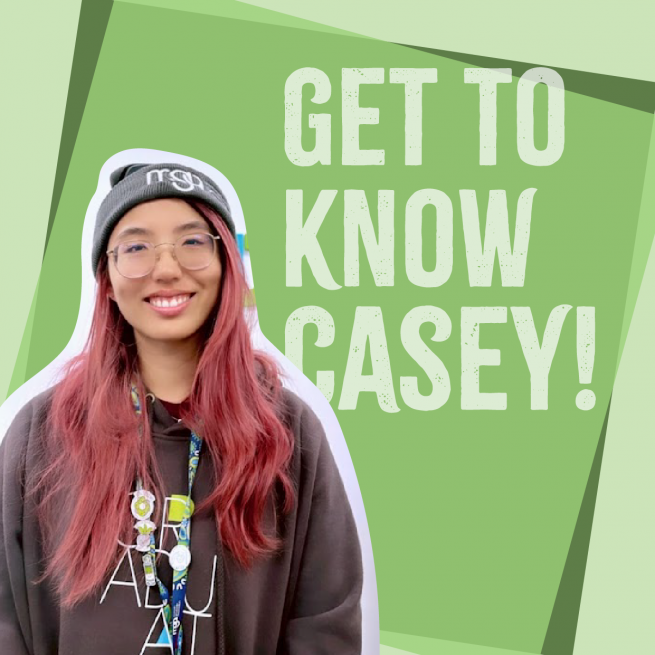Casey Chen Graduate Groups Officer
1. Tell us about yourself and your role within the organisation.

Hi everyone, my name is Casey and I am the MGA Graduate Groups Officer. I started as a Monash graduate student and worked as a student receptionist two years ago before transitioning to my current role. I now assist and help provide funding to students who want to run events for their own cohorts!
And the best part of it all? I get to interact with and support students to run the events they want!
2. Can you provide an overview of the Graduate Student Groups Grants program and its purpose?
The aim of the Graduate Student Group Program is to provide a series of grants for graduate students to organise events or activities such as coffee catch-ups or trivia nights for their specific cohort of students. There are 4 different types of funding available – Seminar organiser, Conference organiser, Departmental Group and Special Interest Group.
In a typical year, we fund approximately 40-50 Graduate Groups such as the Monash Data Science Society (MDSS) or Hudson Institute Student Society (HISS). Additionally, we fund about 25 student-organised seminars and conferences from various schools or departments.
These student-led groups are the heartbeat of the MGA as they provide a world of opportunities to make new friends, share experiences and develop passions amongst a very diverse graduate student community.
3. What kind of events and activities are typically supported through Special Interest Group Funding?
The Special Interest Group Funding supports the exact same events and activities as our Departmental Groups. The only difference is that the students for this group funding do not have to be enrolled in the same department or faculty. Students can come from a cross-section of the University.
For example, our SPHPM International Students Group consisted of international students from various coursework degrees in the School of Public Health and Preventive Medicine who got together because of their common interest to explore Victoria and used their funding to subsidise a day trip to Phillip Island.
4. How can graduate students apply for these grants and what is the application process like? How long does it take to get approved?
Our application forms require three students to form a “Group”. These students get together and decide what events they want to organise and create a budget for these events. After that, it’s simply a matter of filling in the application and submitting it.
Approval times will vary depending on how long it takes to verify and process all the required information. However, if all the necessary information for approval is present and the proposal fulfils the requirements of the grant, it can sometimes take as little as a week!
5. Will these grants be given to students in advance of the planned activities or as a reimbursement?
Students must submit planned events to get approved for funding. If the event has already passed, you won’t be able to apply, so be sure to submit an application as soon as you have any idea!
6. What are some common challenges or misconceptions that students might have about the grants program?
A common challenge I see is that our Groups sometimes feel overwhelmed by the task of running an event, which is understandable! However, the MGA has many resources in place to assist our groups in running events safely and successfully. Check out our Graduate Groups webpage for a handy resource bank and FAQ section. And if you can’t find what you need, you can get in touch via email.
In terms of misconceptions, many students don’t apply because they think the application process will be hard. The application can take as little as 15 minutes to put together, and the rest is up to me!
7. What advice or tips would you give to graduate students who are considering applying for these grants for the first time?
Grants can close if funding for the year is exhausted, so avoid disappointment by submitting your applications early. And if you are unsure, please drop me an email and I’d be happy to walk you through the entire process, including how to run events.
So what are you waiting for? Get in touch with us to help you run your student events!